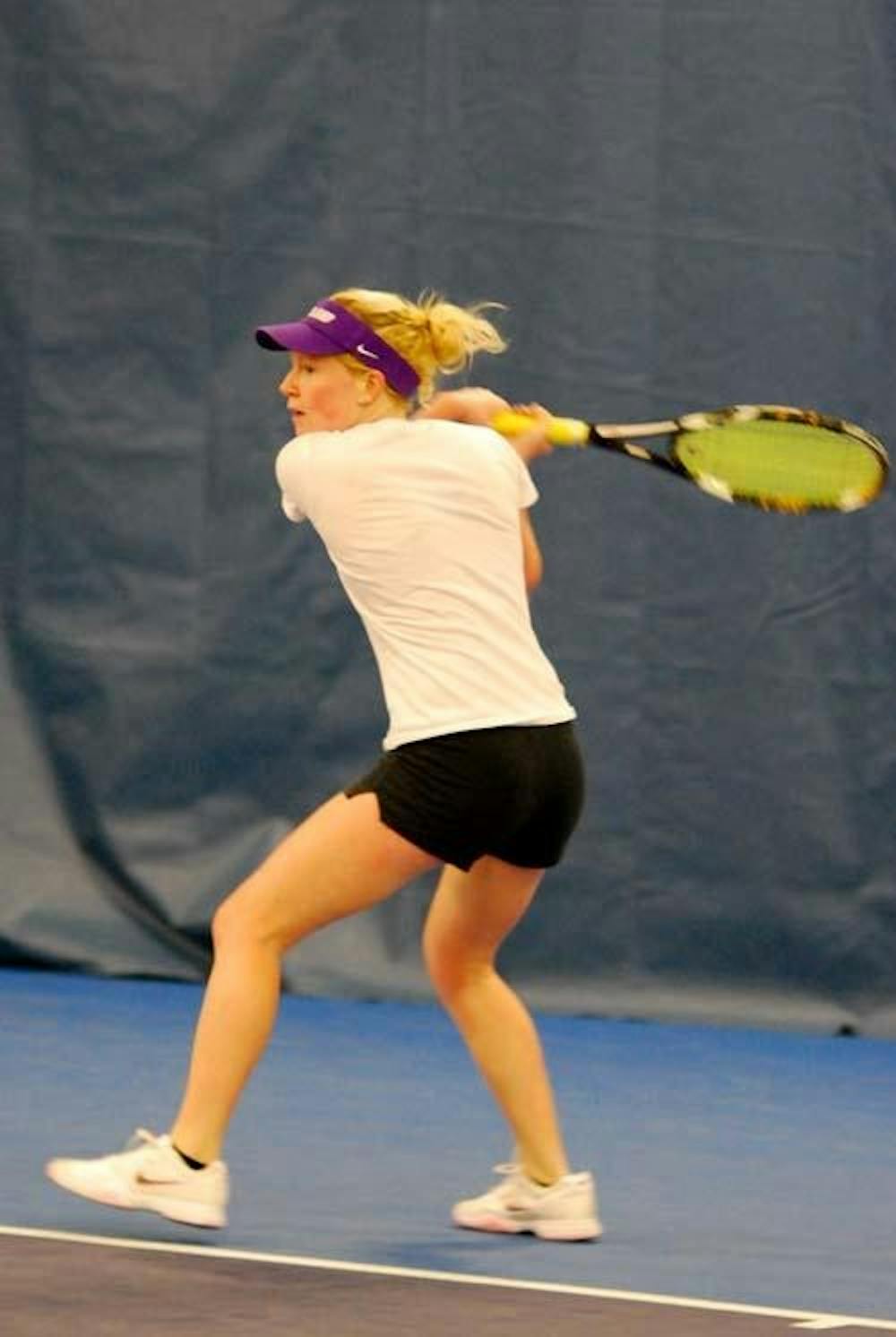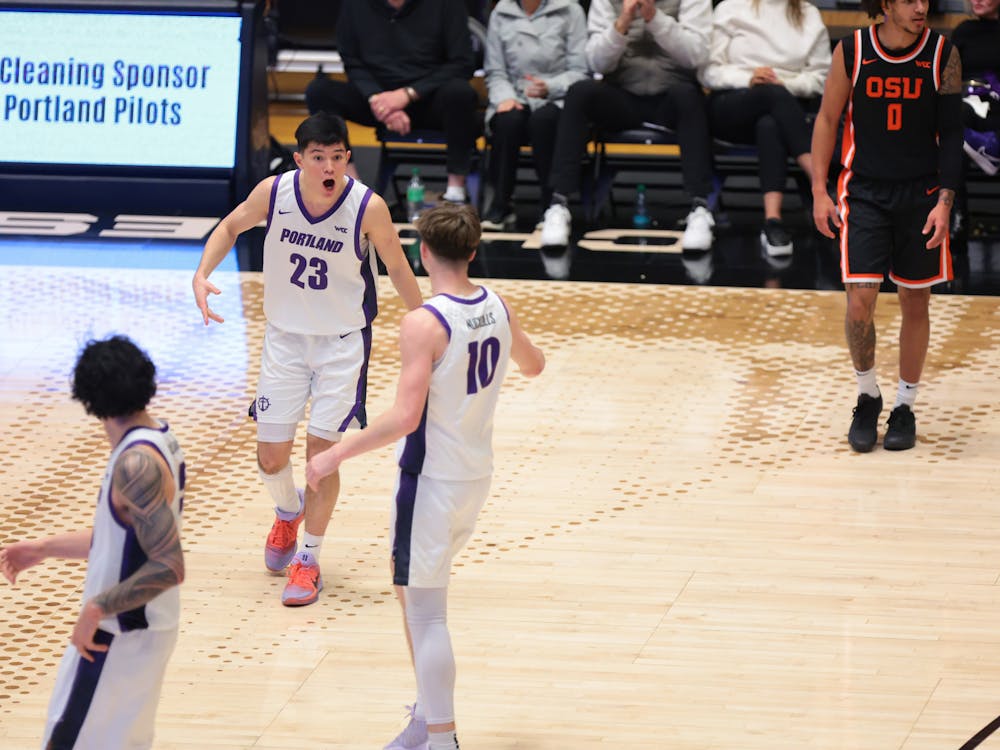With half of the women’s tennis squad being international students, players and coaches share why UP appealed to them
Freshman Emily Gould prepares to return a serve during practice. With five freshman, the team hopes they can learn on the fly to win. (Jackie Jeffers | THE BEACON)
By Taylor Tobin, Staff Writer tobint16@up.edu
Not only is it difficult to juggle college schoolwork and a Division-1 sport, but five out of the 12 women's tennis players have also had to transition to life in the United States.
"I arrived with my dad in [Aug. 2011] and I was so scared," sophomore Anastasia Polyakova said. "I remember when we landed in Seattle and I had to go to the passport check-in and people there were intense."
Despite her initial intimidation with the States, Polyakova, from Saint Petersberg, Russia, has grown fond of Portland.
"People are so nice here compared to Russia. Everyone hates each other there and I'm like, 'people, relax,'" Polyakova said. "No one would talk to you, and here everyone is so friendly."
Assistant coach Filip Zivkovic was the first person Polyakova met when she arrived. Zivkovic made her feel instantly comfortable.
"There are great people here who helped me along when I was an international student here," said Zivkovic, who is from Serbia. "I'm using that knowledge and experience to guide our newcomers through the same things that I was going through."
Zivkovic and Head Coach Susie Campbell-Gross helped freshman Milagros Cubelli, from Buenos Aires, Argentina, adjust to playing tennis in the U.S.
"We play on a clay surface in Argentina. The courts are way too fast, especially indoors," Cubelli said. "I had to change the way I play, but my coaches have made it easy."
Senior Valeska Hoath had no choice to continue playing in Australia, her home, because they do not have college athletics.
"If I chose to go to school back home I would have quit tennis, and I didn't want to do that," Hoath said. "All of our athletes reach the end of high school and have no where to go. A lot of them have come here after realizing the opportunities."
Even with great mentors and opportunities, being an international student has its difficulties in the classroom and everyday life.
"I don't think [school is] that easy," said Polyakova. "Compared to Russian universities it is easy, but the language difference isn't."
Zivkovic notes that the ease of transition varies from person to person. He was very independent when he first arrived to the US, so the change was fairly easy for him, but he understands that it is not that way for everyone.
"We have kids that come in here and have trouble with transition who are from English-speaking countries, and we have internationals that come in from places like Argentina, Serbia and Russia who transition fairy easily," Zivkovic said. "A lot of it has to do with how comfortable they are being away from home."
Cubelli says it's easy to list the three things she misses most from home.
"In this order: my family, Argentinian steak and the weather," Cubelli said. "Everyone told me that Portland is going to rain so much, but I didn't believe them. Then I got here and it rains every single day. I was like, 'That is impossible.'"
According to Zivkovic, Campbell-Gross's aim has been to create a family-like atmosphere so that those who are far from home know that they have a strong support system with their team.
"We try to recruit a group of girls that is going to create a certain atmosphere," Zivkovic said. "Susie has been here for 19 years now and she's created family atmosphere that makes transitioning a lot easier."
Being a leader on the team, Hoath explains that being an international student has allowed her to share her experiences and become closer with her younger teammates.
"The freshman ask me 'How did you do it?' I think [being an international student] gave me a lot more experiences to draw on in advising people. I think that is what leadership is," Hoath said. "Coming here has made me a better person all around."
(Jackie Jeffers | THE BEACON)








